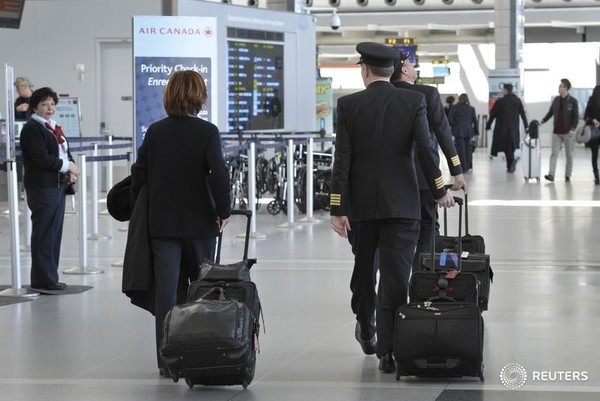Transport Canada also prohibiting crews from working within 12 hours of drinking alcohol

MONTREAL (Reuters) — The federal government is introducing new regulations to limit the maximum number of hours that commercial pilots can fly and cap the time they remain on duty, Transport Minister Marc Garneau said on Dec. 12.
The new rules, which large airlines would have two years to apply, are similar to proposals weighed by regulator Transport Canada in 2017 and come after years of studies on ways to reduce fatigue in the cockpit.
The rules would lower the number of flight hours to 1,000 from 1,200 over 365 days and set a maximum work day anywhere from nine to 13 hours, depending on start time, Transport Canada said in a statement. A commercial airline pilot’s flight duty period was previously capped at 13 hours and 45 minutes.
The U.S. National Transportation Safety Board (NTSB) cited fatigue as a contributing factor in a July 2017 incident when an Air Canada flight from Toronto overflew other aircraft at close range on a San Francisco International Airport taxiway, nearly causing a potentially “catastrophic” incident.
“For too long, Canada has lagged far behind the rest of the world when it comes to ensuring its pilots are well-rested when they fly,” Dan Adamus, president of the Air Line Pilots Association in Canada, said in an email. “The new regulations will without a doubt improve our safety and the safety of those we fly.”
Canada’s large airlines will have two years to implement the new regulations while its smaller carriers will have four years.
Air Canada spokeswoman Isabelle Arthur said by email that the airline, the country’s largest carrier, is “currently reviewing the new regulations,” and “has always met or exceeded Transport Canada standards regarding flight duty times.”
In a statement, WestJet Airlines said it would work to implement the updated crew fatigue standards over the next 24 months.
Transport Canada said it would prohibit crews from working within 12 hours of drinking alcohol, up from a previous limit of eight hours.
The new rules, which large airlines would have two years to apply, are similar to proposals weighed by regulator Transport Canada in 2017 and come after years of studies on ways to reduce fatigue in the cockpit.
The rules would lower the number of flight hours to 1,000 from 1,200 over 365 days and set a maximum work day anywhere from nine to 13 hours, depending on start time, Transport Canada said in a statement. A commercial airline pilot’s flight duty period was previously capped at 13 hours and 45 minutes.
The U.S. National Transportation Safety Board (NTSB) cited fatigue as a contributing factor in a July 2017 incident when an Air Canada flight from Toronto overflew other aircraft at close range on a San Francisco International Airport taxiway, nearly causing a potentially “catastrophic” incident.
“For too long, Canada has lagged far behind the rest of the world when it comes to ensuring its pilots are well-rested when they fly,” Dan Adamus, president of the Air Line Pilots Association in Canada, said in an email. “The new regulations will without a doubt improve our safety and the safety of those we fly.”
Canada’s large airlines will have two years to implement the new regulations while its smaller carriers will have four years.
Air Canada spokeswoman Isabelle Arthur said by email that the airline, the country’s largest carrier, is “currently reviewing the new regulations,” and “has always met or exceeded Transport Canada standards regarding flight duty times.”
In a statement, WestJet Airlines said it would work to implement the updated crew fatigue standards over the next 24 months.
Transport Canada said it would prohibit crews from working within 12 hours of drinking alcohol, up from a previous limit of eight hours.





